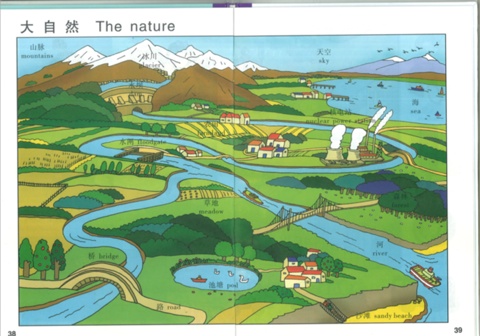I did some catching up on Iraq news. The situation has improved significantly in the last year or so.
Sunni areas: After the U.S. invasion, Kurdish areas were peaceful, but many Sunnis allied with the Al Queda, while the Shia allied with Iran. In the last two years (remember the battle for Fallujah), the Sunni areas have been brought around to where they are peaceful enough for life to begin again. (
Michael Totten files informative reports from the Sunni areas of Iraq.)
The primary characteristic of the so-called "surge" seems to be the strategy of taking back the streets -- taking control of neighbourhoods, rather than simply establishing bases on the outskirts of cities and making patrols. The Sunnis are being paid by the U.S., to keep the peace; but, the peace does appear to be genuinely popular.
One also sees the Al Queda leadership
addressing the Iraqi Sunni community in threatening tones,
and complaining that other Muslims are not doing enough to help the islamist insurgency in Iraq. Mosul is the last major city with significant problems; but, the Iraqi
government is trying to take control there too.
The Shia insurgency -- with cleric Sadr as the most public face -- had declared a ceasefire, probably hoping to wait the U.S. out. Nevertheless, with the Sunnis relatively quiet, the Iraqi government
has moved against Sadr. They started
with a fight in Basra, in the south (Iraq's only port). The Iraqis said they would do it without U.S. help, and some news-reports spoke of how they needed to call in U.S. support after all. I don't think that's a big deal, since they did do much on their own, and since the political willingness to take on the Shia militants is a bigger step than the actual fight.
Having shown force in Basra, the Iraqi government turned to Sadr city in Baghdad. This time, the U.S. support was closer, but the Iraqi units were out front. Again,
some news-reports said that many Iraqi soldiers deserted rather than fight, and some units shrunk back when faced with particularly dangerous situations. The bigger point is that -- overall -- the Iraqi army won this battle. (More reports on Basra
here and
here.)
Cleric Sadr warned that he would lift the cease-fire and spoke of "open war". His fighters were being killed, and he was threatening to fight back -- how lame is that? Soon, he issued a clarification, saying that his "open war" would not be with the Iraqi government, but with the U.S. Now, he's declared a truce. This seems like a potential turning point.
In an odd development, Sadr's Iranian supporters distanced themselves from him. According to one article linked above, Sadr's militia were gaining over the Badr militia that is closer to Iran. So, Iran still remains a huge threat, but it is good to see the Shia-militia on Shia-militia rivalry, and -- more importantly -- to see the government has that moral authority to act against them. [A good summary of the initiative against Shia militia from the WSJ, here.]
Problems remain: There are rumours that the Al Queda and the Shia are trying to cooperate against their common enemy. The bigger threat is Iran's ability to support an insurgency, particularly if the U.S. pulls out.
Iraq still has a long, long way to go. Still, the Sunni areas reached a turning point about a year ago, and need to consolidate. The Shia area are in the middle of a potential turning point. If the Iraqi government can build on these successes, in a few years, Iran will be the only remaining major threat.
What next? The Iraqi government is finally holding together and taking baby steps in the right direction. However, it does not seem to be strong enough to take on various militia without help from the U.S. Even if McCain wins and keeps the U.S. there for another 4 years, there are real problems. Given the history of the region, there's a strong likelihood that any coalition will slowly break, along Shia, Sunni, Kurd lines.
I have an Iraqi neighbor with family in Iraq, who is there now as an Army interpreter. He tells me that things have settled down, and he feels that -- given time -- it can be stable. I think his optimism reflects what the "silent majority" would like, not what their politicians will deliver. I don't think the big risk is ascendant Islam. The more likely risk appears to be a sectarian split, and a division of the country into three major areas. the way the Balkans have split.
That's my "capsule" on Iraq.
Labels: Iraq


